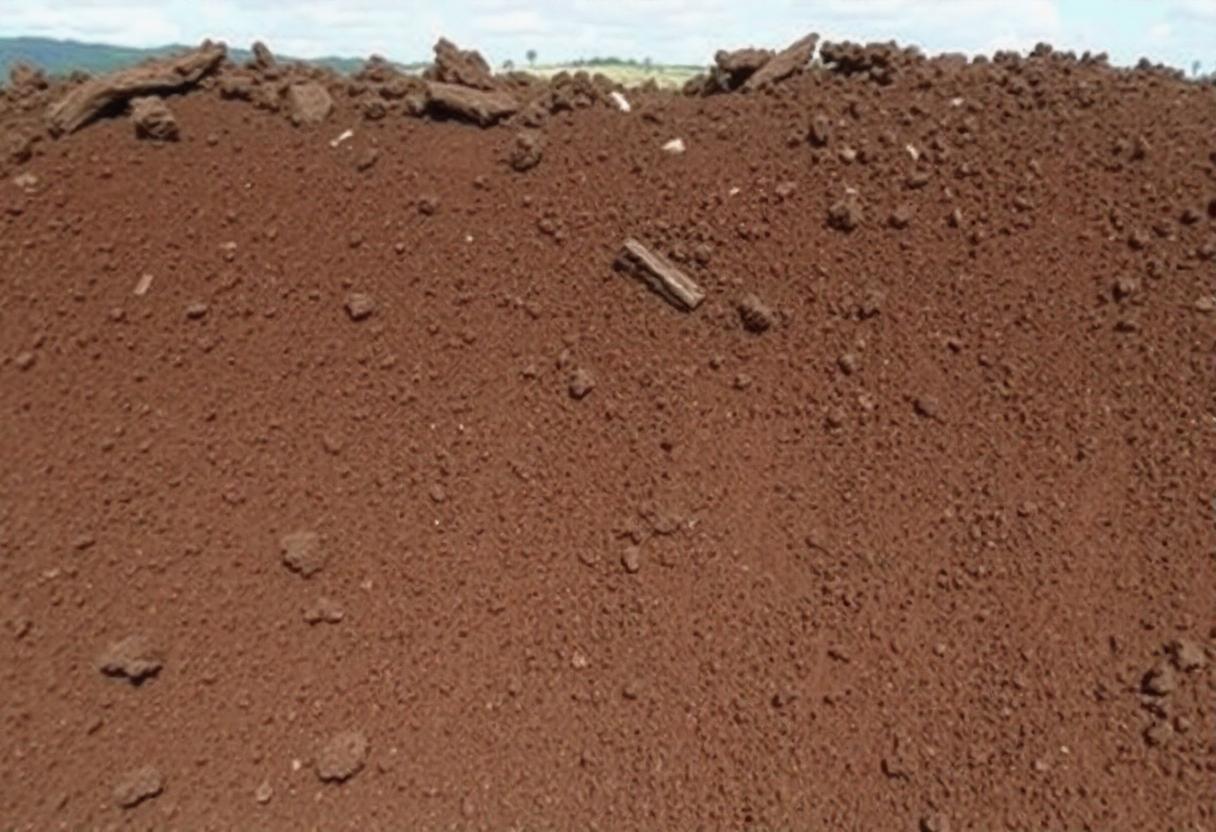
Soil degradation refers to the decline in soil quality caused by natural or human-induced processes. It negatively affects the soil’s ability to function effectively in supporting plant life, regulating water flow, and storing nutrients. This degradation is one of the most pressing environmental challenges worldwide, as it impacts food security, biodiversity, and water resources.
Causes of Soil Degradation
- Deforestation Deforestation is one of the leading causes of soil degradation. When trees are removed, the soil loses its natural protective cover, making it more susceptible to erosion by wind and water. Additionally, the roots of trees and plants play a crucial role in stabilizing soil structure, and their removal can lead to a breakdown in soil integrity.
- Overgrazing Livestock grazing can degrade soil when animals consume vegetation at a rate faster than it can naturally regenerate. Overgrazing reduces plant cover, leaving the soil bare and prone to erosion. Compaction caused by the trampling of livestock also reduces soil aeration and water infiltration, leading to poor soil structure.
- Unsustainable Agricultural Practices Intensive farming practices, such as excessive plowing, monocropping, and the overuse of chemical fertilizers and pesticides, degrade soil health. Continuous cropping without crop rotation depletes the soil of essential nutrients, while the use of heavy machinery compacts the soil, reducing its ability to retain water and support healthy root growth.
- Urbanization Urban sprawl and infrastructure development contribute to soil degradation by sealing off large areas of land, leading to the loss of arable soil. The construction of roads, buildings, and other infrastructure increases surface runoff, which can lead to erosion and a reduction in groundwater recharge.
- Climate Change Changes in climate patterns, such as increased temperatures, altered precipitation, and extreme weather events, exacerbate soil degradation. Prolonged droughts reduce soil moisture and organic matter, while heavy rainfall increases the risk of erosion, especially in areas already vulnerable to soil loss.
Impacts of Soil Degradation
- Loss of Agricultural Productivity One of the most significant consequences of soil degradation is the decline in agricultural productivity. As soil quality deteriorates, crop yields decrease, and the ability of the land to support farming diminishes. This poses a direct threat to global food security, particularly in regions that rely heavily on agriculture for their livelihoods.
- Water Scarcity and Pollution Degraded soil has a reduced ability to retain water, leading to increased surface runoff. This not only reduces the amount of water available for crops but also contributes to water pollution. Runoff often carries harmful chemicals, pesticides, and sediments into rivers and lakes, which can harm aquatic ecosystems and reduce water quality.
- Loss of Biodiversity Healthy soils support a diverse range of organisms, including plants, microorganisms, and animals. Soil degradation disrupts these ecosystems, leading to the loss of biodiversity. As vegetation is lost due to erosion and overuse, habitats for wildlife are destroyed, further diminishing biodiversity in affected areas.
- Climate Change Feedback Loop Degraded soils release stored carbon into the atmosphere, contributing to global warming. Soil is a critical carbon sink, and its degradation reduces its capacity to sequester carbon, exacerbating the effects of climate change. This creates a feedback loop, where climate change accelerates soil degradation, which in turn worsens climate change.
Solutions to Combat Soil Degradation
- Sustainable Agricultural Practices The adoption of sustainable farming practices can significantly reduce soil degradation. Techniques such as crop rotation, conservation tillage, and organic farming help maintain soil fertility and structure. By reducing the use of chemical inputs and implementing practices that conserve soil moisture, farmers can enhance soil resilience.
- Agroforestry and Reforestation Agroforestry, the practice of integrating trees into agricultural systems, is an effective way to combat soil degradation. Trees provide shade, improve soil structure, and reduce erosion by stabilizing the soil. Reforestation efforts in degraded areas can restore soil health by promoting the return of organic matter and improving water retention.
- Erosion Control Measures Implementing erosion control measures, such as terracing, contour plowing, and the use of cover crops, can help prevent soil loss. These methods reduce the speed and volume of surface runoff, allowing water to infiltrate the soil and preventing the removal of topsoil.
- Policy Interventions and Education Governments and international organizations play a crucial role in addressing soil degradation through policy interventions. Encouraging sustainable land management practices, enforcing regulations against deforestation and overgrazing, and providing incentives for conservation practices are key strategies. Additionally, educating farmers and landowners about the importance of soil conservation can promote widespread adoption of sustainable practices.